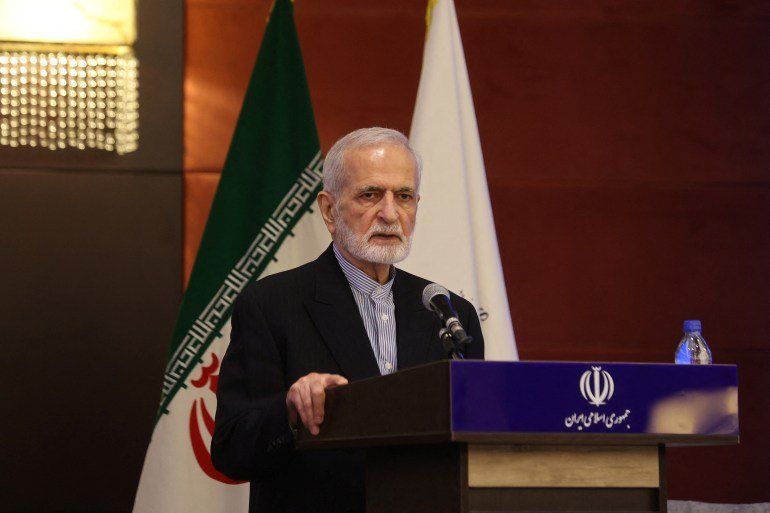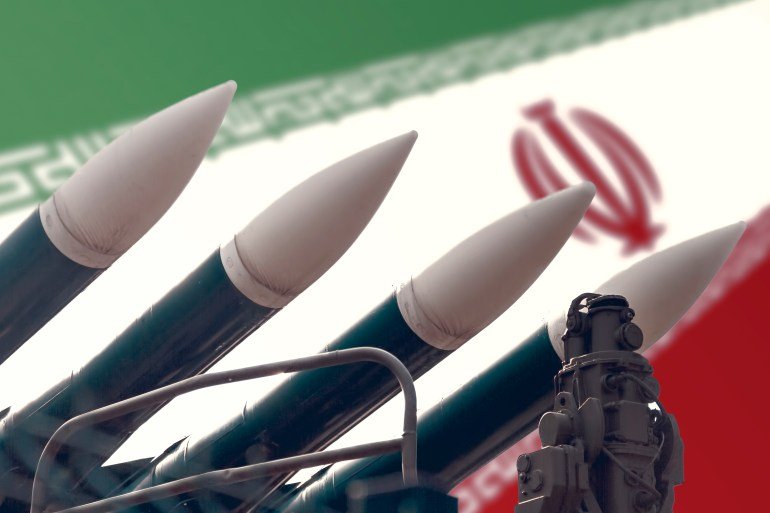Tehran- Although Iran insists that its nuclear program is purely peaceful in nature, its nuclear policy is one of the most controversial issues in the Middle East and the world, and its nuclear program is considered an integral part of its defense doctrine, as the Islamic Republic seeks through it to achieve multiple objectives related to… National security, sovereignty and deterrence, within the framework of the equation of power and regional balance.
Iranian leaders realize that their nuclear program provides Iran with a strategic pressure card, both internal and external, and although it expresses its lack of intention to build nuclear weapons, the technical and scientific capabilities it is developing in this area give it leverage that can be used as part of a global deterrent, in the face of potential threats from regional and international adversaries.
Iran’s nuclear program began in the 1950s with strategic cooperation between Tehran and Western countries, but this cooperation ended after the victory of the Iranian revolution in 1977.9Western companies withdrew from nuclear projects and the program was frozen for a short time.
With the escalation of the war in Iraq and the refusal of countries to supply weapons to Iran, the positions of the revolutionary leadership changed and allowed the resumption of nuclear research. In the 1990s, Iran sought new allies, and so Russia cooperated with it, but in 2003. the International Atomic Energy Agency revealed undeclared nuclear facilities, which aggravated disagreements between Iran and the West.

Latent nuclear deterrence
Iran relies heavily on the concept of deterrence to formulate its defense doctrine, and Iran’s philosophy of deterrence is based on several factors, including the ability to respond strongly in the event of aggression, using its advanced missile capabilities or through its regional allies, and the nuclear program is part of this system, even though Iran consistently claims that it is not seeking to develop a nuclear weapon.
Many analysts believe that the existence of Iran’s nuclear program itself, even if peaceful, is an important strategic deterrent. Potential threats from adversaries, such as Israel or the United States, help strengthen Iran’s willingness to develop nuclear capabilities that will allow it to negotiate, since the very ability to develop nuclear technology is itself a political tool to deter external attack or pressure.
Iranian negotiating team advisor Muhammad Marandi confirmed that Iran’s nuclear program is peaceful and there is no intention to change this in light of the current circumstances, and that Iran has increased the uranium enrichment rate in order to put pressure on the Western side in the negotiations, adding that at present there is no positioning on the military level, but the increase in the enrichment rate in itself has a role of deterrence and pressure on the West.
He continued in his speech on Al Jazeera Net: “If we feel a threat, we may have to change our minds, and there is no doubt that Iran is a nuclear country advanced in nuclear technology,” adding that the statements of Kamal Kharazi, an adviser to the Supreme Leader, should be taken seriously, in which he said: “Tehran will be forced to… change its nuclear doctrine if it is exposed to an existential threat from Israel.”

As international security researcher Arif Dehqandar explains: “Given the transitional period of the international system, its chaotic nature, the chaotic environment in the Middle East, and the ever-increasing threats from Israel, Iran has adopted a strategy of latent nuclear deterrence, which is that the state has “the knowledge, the scientists, the technology, and the uranium that are needed to make nuclear weapons.”
He added in his interview with Al Jazeera Net that these measures are motivated by political, religious, economic, security and information reasons, but that Iran is not in the process of building nuclear weapons and that this type of deterrence gives countries the opportunity to start producing nuclear weapons as quickly as possible, and to obtain a progeny if they are threatened or attacked.
The researcher explains that having a “latent nuclear deterrent” is not contrary to international law and that Iran, which acquired this capability under the Nuclear Non-Proliferation Treaty, continues its cooperation with the International Atomic Energy Agency and continues its nuclear activities.
Dehqandar refers to Supreme Leader Ali Khamenei’s fatwa regarding the prohibition of the production, possession and use of nuclear weapons, explaining that Iran does not seek to manufacture nuclear weapons in the current situation, but rather intends to control Israel’s aggressive behavior and obtain more concessions from the West in possible future negotiations with… the United States of America, using the strategy of “latent nuclear deterrence.”
He adds that Iran’s pursuit of this strategy began after October 7, 2023, but became more intense due to the limited conflict between Iran and Israel last April, with Israel’s threats having a major impact on Iranian officials’ interest in its strategy.
National and regional security
On the other hand, Professor of Politics Parham Pour Ramadan says that Iran’s nuclear program is purely peaceful and can be placed in the context of national security and national interest. It is also linked in some way to regional security and aspires to achieve security and stability in the region through peace, according to him.
He added in his interview with Al Jazeera Net that Iran has a peaceful nuclear program, but if the regional and international situation changes and Iran places its nuclear program in the context of its defense doctrine, then it will have to decide what its nuclear deterrent will be: will it be regional only or will it be general and international.
He explains: “When we talk about regional situations, we mean the Israeli aggression against Palestine and the geopolitical problems between Iran and its neighbors, especially the Gulf states, but these issues will not rise to the level of a threat to Iran, as the Gulf countries expect. The real threat is the regional war with Israel, which could prompt Iran to think about a change in doctrine.”
But the researcher ruled out that Iran will change its defense doctrine in the near future, given the internal as well as regional and international conditions, in addition to the fact that Iran has good pressure tools at the diplomatic level, capable of responding to all circumstances, adding that “if Iran has a choice between continuing the current situation and a regional war, “it will choose to remain in the current situation, with some observations.”
Many analysts believe that Iran’s nuclear program goes beyond the limits of politics and deterrence to more complex levels, as it represents a technical development and a symbol of national strength and independence, and many Iranians, both in power and on the street, consider it proof that Iran is capable of achieving scientific and technical progress despite the sanctions imposed on it.
This national dimension constitutes an important part of the Iranian regime’s discourse, which uses the nuclear program to increase its internal popularity and promote the idea that Iran is strong and not subject to external pressures. It uses it as a non-military but effective weapon to strengthen Iran’s power in the face of threats and achieve Iran’s strategic and internal objectives.

